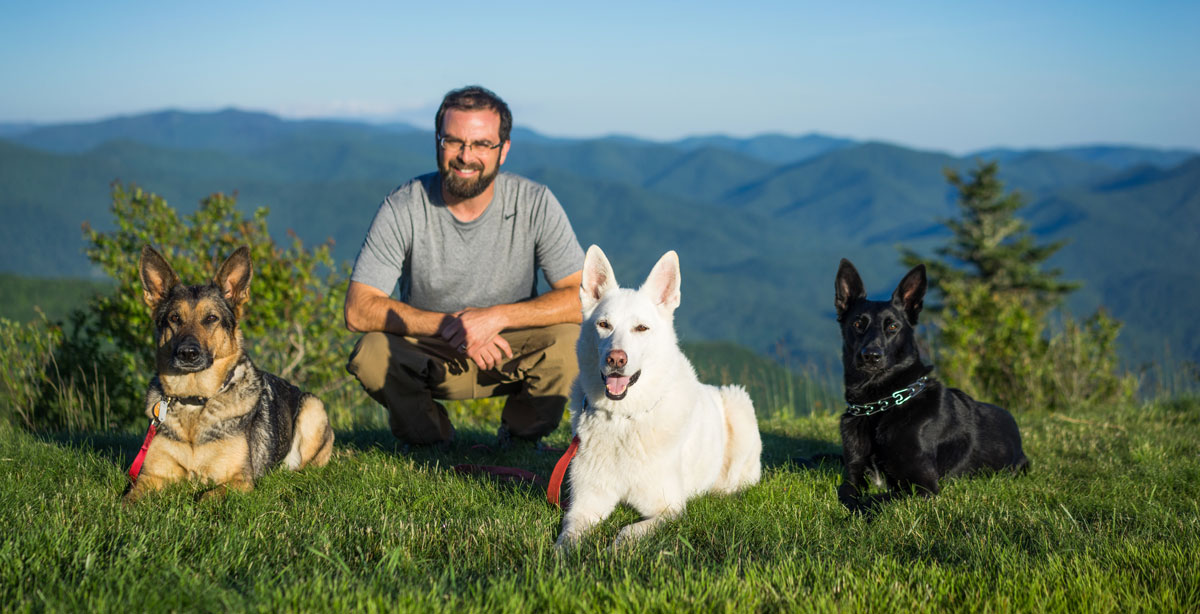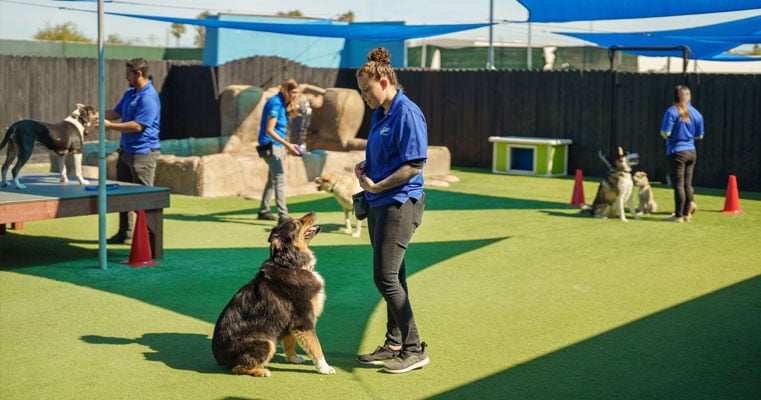The Ultimate Overview to Favorable Reinforcement in Dog Training
The Ultimate Overview to Favorable Reinforcement in Dog Training
Blog Article
Essential Tips for Successful Dog Training: An Overview for Pet Dog Owners
Effective dog training is a complex process that requires a strategic strategy tailored to both the family pet's personality and the proprietor's purposes. Key components such as developing constant commands, employing positive support, and facilitating early socializing play essential roles in fostering a well-adjusted canine buddy. Many pet proprietors come across difficulties that can impede progress, leading to irritation and unpredictability. Recognizing how to browse these barriers can substantially boost the training experience, eventually changing the relationship between owner and canine. What are the essential techniques that can be utilized to ensure success in this endeavor?
Comprehending Canine Behavior
Recognizing dog actions is necessary for efficient training and fostering an unified partnership in between dogs and their proprietors. dog training. Pet dogs communicate largely through body language, vocalizations, and activities, making it vital for owners to analyze these signals properly.

Socialization plays a considerable role in pet actions; direct exposure to different atmospheres, individuals, and various other animals can significantly affect a pet's temperament. Elements such as breed qualities and private personality should guide training approaches, as some types may have specific behavior qualities that require tailored strategies. By comprehending these elements, proprietors can produce a helpful environment that urges positive actions, causing successful training results and a deeper bond with their pet dogs.
Developing Consistent Commands
Reliable communication with your pet begins with establishing regular commands. This foundational component of training is vital for fostering understanding in between you and your animal. Uniformity in the commands you utilize ensures that your pet dog can reliably connect specific words or expressions with the desired habits.
When choosing commands, select clear, distinctive words that are simple to claim and separate from each other. Avoid making use of similar-sounding commands that might confuse your pet dog. As an example, utilizing "rest" and "stay" is proper, yet "sit" and "hit" can result in misconceptions.
Furthermore, keep the same tone and volume for every command. Pet dogs are sensitive to vocal signs, so differing your tone can create complication.
It is just as essential to make sure that all relative are on the exact same page concerning the commands made use of. A united front in command usage will certainly stop mixed signals and strengthen the understanding procedure.
Favorable Reinforcement Strategies
The power of favorable support in canine training depends on its capability to urge preferred habits with incentives and praise. This method is based in the principle that habits followed by desirable outcomes are more probable to be repeated. By integrating positive support right into your training regimen, you can successfully form your dog's behavior in a positive manner.
To apply positive reinforcement, it's essential to determine what encourages your dog, whether it be deals with, playthings, or spoken appreciation. When your canine performs a desired action, such as resting on command, promptly award them with a reward or affection. This association in between the command and the favorable end result reinforces their understanding.
It's critical to timing the incentives properly; providing the support within seconds of the wanted habits assists your pet dog make the connection (dog training). Furthermore, uniformity is essential-- make sure that all member of the family utilize the very same commands and reward systems to you could try these out prevent confusion

Slowly, you can lower the frequency of deals with as your pet dog learns the behavior, transitioning to praise or intermittent benefits. This method not only cultivates a strong bond between you and your pet however also promotes a positive understanding environment, making training a pleasurable experience for both.
Socialization and Interaction
Constantly exposing your pet to a variety of environments, individuals, and various other animals is important for their social growth. Socializing needs to start early, preferably throughout the critical window of 3 to 14 weeks, when puppies are most responsive to brand-new experiences. Nonetheless, older dogs can also profit from recurring socializing initiatives.
Present your pet to various setups, such as parks, pet-friendly additional resources shops, and city locations. This exposure helps them adapt to numerous stimulations, minimizing stress and anxiety and worry reactions. Encourage positive communications with other canines and people, ensuring that these experiences are risk-free and controlled to promote confidence.
Utilize organized playdates with well-mannered dogs, as this can boost your canine's social abilities and show them appropriate actions. Obedience classes and training sessions additionally supply excellent possibilities for socialization, permitting your canine to interact with others in a monitored atmosphere.
Monitor your canine's body movement during communications, as this will aid you evaluate their convenience level. Slowly raise exposure to even more challenging circumstances while making certain that each experience is favorable. A well-socialized dog is most likely to display well balanced behavior, making them a delight to have in any kind of setting.
Attending To Usual Training Challenges
Every canine proprietor will certainly experience training obstacles eventually, despite their pet dog's age or socializing level. Determining typical concerns such as stubbornness, interruptions, and terror can aid in creating effective techniques for enhancement.

Gradually present distractions as the dog becomes extra efficient in commands. Short, frequent training sessions are also effective in maintaining attention.
Fearfulness can prevent a pet dog's knowing procedure. Steady desensitization to the resource of concern, coupled with favorable reinforcement, can help relieve anxiousness. Persistence is vital; never ever compel a pet right into a situation that creates distress, as this might aggravate the concern.
Ultimately, understanding and attending to these typical difficulties with a structured approach will certainly cultivate a more efficient training experience, enhancing the bond in between dog and proprietor while advertising effective understanding.
Final Thought
In summary, effective pet dog training counts on an extensive understanding of canine habits, the facility of regular commands, and the application of positive support methods. Socializing plays a crucial function in establishing well-adjusted animals, while addressing typical training challenges calls for patience and flexibility. By applying these essential approaches, pet proprietors can promote a solid bond with their canines and promote preferable habits, inevitably causing an unified connection between humans and their canine friends.
Recognizing canine habits is necessary for effective training and promoting an unified connection between pooches and their owners.Socializing plays a substantial duty in pet actions; exposure to various settings, people, and other pets can substantially affect a canine's personality.The power of positive support in pet training exists in its ability to motivate preferred actions with incentives and praise. By integrating favorable reinforcement into your training program, you can effectively form your pet dog's habits in a positive way.
In recap, successful canine training relies on a thorough understanding of canine habits, the facility of regular commands, and the application of positive support strategies.
Report this page